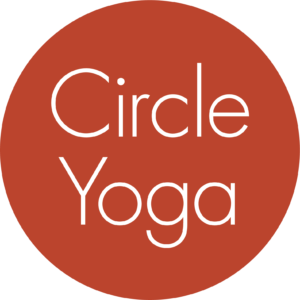August 2011
Dear Friends,
It’s swelteringly hot outside these days. I have noticed that when I am walking or running outside in the heat of the day, I am sometimes preoccupied with the oppression of the heat. Some days I have a hard time enjoying what I am doing outside because I get stuck on thinking about the heat and how to relieve it. If I am going somewhere with air conditioning, I start to think about how nice it will be once I get inside. And then I get inside and yep, it feels really great to cool off and experience a slightly less humid environment. Those first moments inside the AC are pretty delicious, aren’t they? In that moment, it feels like we don’t need anything but to bask in the cool air. We are content for a few minutes, but pretty soon we are thinking about the next thing we need.
I’m reading a really eye-opening book on addiction right now, In the Realm of the Hungry Ghost. In Buddhist texts, hungry ghosts are creatures with giant bellies and long thin necks who are unable to ever fully satisfy their huge cravings.) The author, Dr. Gabor Maté, describes many long-time injection drug addicts, and all the suffering they are willing to endure in order to keep taking their drug of choice. Many have skin or bone infections from dirty needles, many are abused, have HIV, and go to prison. The addicts he describes accept these and other crippling consequences in order to get high. Why?
Dr. Maté defines addiction as craving “the absence of the craving state.” What satisfies an addict is that brief moment of being free from the enslavement of his addiction. For the short time that he is high, he is content, much like the feeling we have when we first arrive in the AC. For those minutes, we are no longer preoccupied with the heat, we are content. And the addict is no longer preoccupied with getting his next hit, he is also content.
The Buddha often said that he taught only suffering and the end of suffering. And since the Buddha equated suffering with craving, I would suggest that the Buddha was really teaching craving and the end of craving and addiction. The first thing that the Buddha taught after he “woke up” was that simply by being born human we are subject to the kind of suffering brought about by craving. It’s not unique to addicts. Our human brains are wired this way. We get hooked into wanting something we don’t have, and it’s the wanting itself that is the root of our suffering. When we get what we want, the craving is satisfied momentarily. Before long, however, we are on to wanting something else.
When we are living in craving, like an addict, we are not free. A hard core drug addict doesn’t have the freedom that most of us have. Her brain is locked onto her craving most, if not all, of her day. We may have more
freedom than that, but we still spend much of our days locked in craving. For cooler weather, different family members, a better job, more money, a better body, or something else that speaks to us. Neuroscientists have discovered that this is the fact of how our brain is wired. The more a neural pathway is used, the harder it is to break out of it, and the less freedom we have.
From Dr. Maté:
“It’s a subtle thing, freedom. It takes effort; it takes attention and focus to not act something like an automaton. Although we do have freedom, we exercise it only when we strive for awareness, when we are conscious not just of the content of the mind but also of the mind itself as a process.”
For me, this is what practicing yoga and mindfulness is all about. Giving us this freedom of conscious choice. Physiologically, when we practice awareness, we witness how we are using the pathways of our brain, which in itself takes us out of those pathways. By practicing, we give ourselves the ability to react in new and different ways when we encounter the same stimulus.
It’s easier to practice with small things first. For example, when we are out in the heat, we might notice when our minds get caught up in craving cooler weather or AC. When we notice that, we can then consciously choose whether or not to go into an air conditioned building, without being compelled unconsciously by our though processes.
If that sounds too easy, we can try noticing when we want to check our email or phone, turn on the TV or grab a snack. We can see that our automatic process is starting up, and we can watch it carefully. What caused that impulse to arise? How strong is it? Can I choose to do something differently, or am I unable to make a different choice this time? Let’s not be too hard on ourselves because this is a very difficult practice. Imagine putting a treat in your pet’s mouth and expecting him not to eat it. It’s that hard. An added benefit of this practice you may notice is the arising of compassion for all of the other addicted beings on this planet.
When we are able to be free, even for one moment, then our life can start to become our own and we can make choices in line with our deepest, most authentic values. And isn’t that what we humans really want? To live in contentment and freedom, regardless of external circumstances? In my mind, this would be nirvana. To be content with what is, and at the same time experience the full freedom to choose without being controlled by the automatic processes of our brains.
Here’s hoping you stay cool, one way or another.
with love,
annie.
